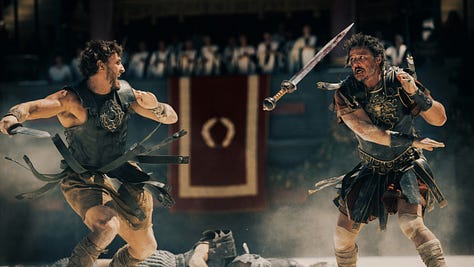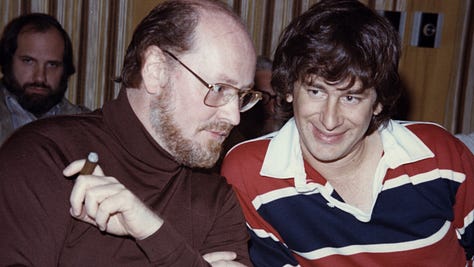Monday new releases: 18 November 2024
Never Look Away and Gladiator II are in cinemas, Music by John Williams is streaming on Disney+



Last week was a busy one for writing broadcasting but a little less so for watching. The third review in today’s newsletter is actually an extract pointing at a longer version on the RNZ website, hence this edition will stay on the free side of the paywall.
Also, for those paying close attention, Christmas Eve in Miller’s Point was a new release in New Z…


